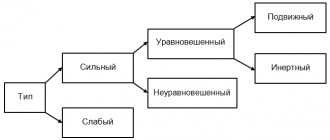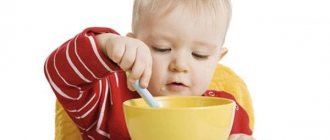- November 7, 2019
- Psychology of Personality
- Angelica Braldi
Quite often, adults justify a child’s behavior and actions with the phrase: “He’s a teenager.” “What age is this?” — a similar question arises for everyone who faces difficulties in communicating with children. Really, who can be considered a teenager? A 16-year-old “minor” rebelling against everything in the world? Or an 11-year-old child defending his right to hang out with friends until late?
Every parent needs to know what exactly they are facing. With difficulties caused by growing up, restructuring of the body, or the most common hooliganism. Understanding these nuances is necessary in order to correctly structure your behavior in relation to the child’s actions. It will not be superfluous to know what exactly is meant in psychology by the concept of “adolescence.”
What it is?
At the beginning of the last century, the word “teenager” was almost never used; people usually said “youth.” However, after the revolution, they tried not to utter this word because it reeked of the bygone past. Now “youth” is associated with religion, the speeches of priests, and in everyday life the “teenager” and the English synonym “teenager” are used.
The scientific concept of “adolescence” appeared at the end of the 19th century. This happened largely due to the manifestation of interest in the problems of youth on the part of writers, philosophers, and thinkers of that time. For example, Dostoevsky in his novel “The Adolescent” describes the problems characteristic of youth no worse than psychologists do.
What is it? According to scientific definition, this is a specific age period in a person’s life. It is a transition between childhood and adulthood. Accordingly, it is characterized by many changes occurring both in physiology and in human consciousness.
Cognitive development: memory, attention, speech
The speech of thirteen-year-olds is practically no different from that of an adult. If problems with pronunciation of sounds have not disappeared by this age, you need to contact a speech therapist. Children are already excellent at operating with abstract concepts, analyzing, identifying and explaining cause-and-effect relationships.
In groups of teenagers, obscene words and slang are often actively used, so parents need to monitor the culture of communication in the family, setting a good example.
Good memory and concentration are necessary for successful studies and harmonious development of a teenager. Every day he has to perceive and process a large amount of information. The following will help to activate your child’s mental development:
- Reading (besides the school curriculum).
- Mind games.
- Leisure.
- Hobby.
- Participation in competitions and competitions.
When does it start and end?
What age is a teenager? Modern science does not give a clear answer to this question. The following factors influence the scope of this period:
- the country or region in which the child lives;
- nationality and gender;
- cultural characteristics;
- social conditions.
In general, the maximum period of adolescence is the age from 10 to 19 years. Of course, not every person on the threshold of their twenties is a teenager, and not every child begins to grow up from the tenth year of life. On average, a teenager is considered a person between the ages of 12 and 17 years. However, the age at which a child is considered a teenager depends on the individual characteristics of his development.
How is the period of growing up divided?
As for dividing the period of growing up into separate stages, the United Nations has adopted the following classification:
- early – from 10 to 14;
- late – from 14 to 19.
This is the division that is followed in most countries, and it is generally accepted and international.
Of course, there are other options for dividing growing up into separate stages. For example, in the Soviet Union it was believed that early adolescence was 12-14 years old, and late adolescence was 15-17.
Content:
- Age characteristics of children aged 13-14 years Development of girls
- Features of the development of boys
- Emotional development
What is happening in the psychology of teenagers? Main features
The psychological characteristics of adolescents are inextricably linked with the changes occurring in their body and mind. This is an extremely controversial time, filled with rapidly occurring changes that yesterday’s children cannot always cope with.
The main features of psychology at this age correlate with adulthood. This is the tendency towards her and her feeling. It is generally accepted that younger teenagers tend to mature. For those who are older, accordingly, a feeling, a sense of their own adulthood, is characteristic.
It is what a teenager feels that determines his behavior, manner of speaking, and actions.
The tendency to grow older - what is it?
The first main feature of the psychology of a teenager is the tendency towards adulthood. What does this mean? The fact that a teenager wants to be an adult and strives to demonstrate this by all possible means.
It is in the presence of a tendency, but in the absence of awareness, a sense of adulthood, that teenagers begin to be rude, break established rules and generally rebel. This psychological stage is characterized by awareness of rights to something with a complete absence of a sense of responsibility.
Psychologist's work with teenagers
Considering that all families and upbringing in them are different, but the child must be treated like an adult, it is important for parents not to lose contact with him. And the maturing body learns to interact not only with family members.
During the period of personal maturation, teenagers are “prickly”, taciturn, study worse, begin to forget about hygiene, make a mess in their home, lie and steal. As a result, parents are simply shocked. Moms have hysterics, and dads have one single desire - to subjugate the child at any cost.
Feeling of adulthood: how is it characterized?
When adults ask the question: “What age is a teenager?” - then, as a rule, they just want to know when their child will calm down and become sweet, kind and good again. However, teenagers stop being hooligans and being rude not at all when adolescence ends, but at the moment when in their minds the tendency to grow up changes to a feeling. That is, as soon as a teenager gains a sense of adulthood, his behavior changes radically.
How is this feeling characterized? First of all, awareness of responsibility for one’s own actions and words. Secondly, an understanding of the value of things and the meaning of money appears. Teenagers no longer just want to be a hooligan and rebel against existing rules; they are trying to earn extra money and save pocket money to buy something. They are also more consistent in their wishes for holiday gifts to parents.
At what age do children become teenagers with a sense of adulthood, rather than a tendency towards it? There is no answer to this question. Personality development occurs individually and largely depends on the conditions in which the child lives.
How does physiology change?
Teenagers aged 12-16 not only behave differently, but also look differently. What is happening in their body? The body begins to mature and change in the same way as consciousness. Some changes happen gradually, while others seem to appear out of nowhere, frightening teenagers.
During the transition period, puberty begins and ends. At this time, girls begin their periods and the menstrual cycle is established. Young men experience wet dreams and spontaneous erections occur. Of course, secondary sexual characteristics also appear.
In addition to changes associated with the reproductive system, other processes are also taking place. The voice changes, body hair appears. A new hormonal balance is established inside the body, and metabolism also changes. The physiological characteristics of adolescents are that a large number of different processes simultaneously take place in their bodies, which can negatively affect the functionality of internal organs. For example, heart rhythm may be disturbed, intestinal upset or renal dysfunction may occur periodically. However, the most common disorder is fat metabolism, which causes the hair to become greasy and the face to become covered with acne.
But if there is a hereditary tendency to serious diseases during adolescence, one should exercise increased caution and undergo regular medical examinations.
How much should a thirteen-year-old child sleep and eat?
A thirteen-year-old should sleep 8-9 hours a day. Parents need to ensure that studying, going out with friends, playing computer games and other activities do not violate this rule. An irregular sleep-wake schedule causes chronic fatigue, which can affect both health and school performance.
A child’s body is actively growing and rebuilding, so it needs nutritious, regular nutrition. During the day, a teenager should eat 4-5 times (three main meals and 1-2 snacks). It is advisable to eat the most high-calorie dishes in the first half of the day, and dinner, on the contrary, should be light and easily digestible.
Daily physiological need for energy and nutrients in thirteen-year-old children:
- for boys: approximately 2750 kcal (depending on the level of physical activity), 93 g protein (including 56 g animal protein), 93 g fat, 370 g carbohydrates;
- for girls: about 2500 kcal (depending on the level of physical activity), 85 g of protein (including 51 g of animal protein), 85 g of fat, 340 g of carbohydrates.
Parents of girls should pay attention to changes in eating behavior associated with the menstrual cycle. Before the onset of menstruation and during menstruation, many girls have an increased craving for sweets or other certain foods. If your daughter happily eats a chocolate bar in one sitting, you need to remind her of the consequences (for example, weight gain, which many women already gain before menstruation). Replace unhealthy foods with healthy ones (fresh and dried fruits, dairy products).
What are the features of mental development during adolescence?
What age is a teenager in terms of mental development? What is its importance? Unfortunately, many parents do not realize that during adolescence, not only the male or female nature is formed, but also the human psyche.
Psychologists identify three key, main characteristics of the transition period:
- social development;
- activity;
- neoplasms.
Social development in this age period primarily refers to communication with peers. If in childhood a person’s priority was the opinion of his parents, grandparents, and teachers, then in adolescence the situation changes. The most important thing at this age is the opinion of peers and slightly older children. It is their approval that a teenager seeks.
What is meant by activity? Psychological processes occurring during everyday activities. For example, at school a teenager compares himself with others, and he forms an idea of his own personality. When mastering a subject, a teenager no longer evaluates it at the level of interest, but from the point of view of whether he is ready to do it or not.
Neoplasms are all those mental processes that were not characteristic of a child, but appeared in the mind of a teenager. That is, they should include both interest in the opposite sex and an understanding of the value of things and money.
Disadaptation
Disadaptation, that is, problems with accepting a new social situation and entering into it, is a normative phenomenon of adolescence. This arises against the background of uneven development of personality spheres. Disadaptation manifests itself:
- criticism of oneself and others;
- hypersensitivity;
- vulnerability;
- aggressiveness;
- instability of desires and moods;
- intrapersonal conflicts (the most popular is “Who am I?”).
A teenager strives to know himself, which results in a craving for peers (clubs of interests, subcultures, multiple acquaintances). That is, a teenager receives information about himself by looking at his peers.
All teenagers are explorers. They study the world, themselves, and other people. Sometimes introspection takes an extreme option and turns into self-examination and self-flagellation.
- It was experimentally revealed that adolescents who are anxious, insecure, uncommunicative, withdrawn, overly controlling themselves and feeling guilty have problems with adaptation.
- An average level of adaptation was noted in unstable adolescents with an average level of self-control, prone to dominance and aggression.
- Successful adaptation is characterized by confident, sociable, non-anxious adolescents with adequate self-esteem and level of self-control.
Sometimes normative maladjustment drags on, and then, as a rule, we are talking about deviant behavior.
Teenage angst
Specific fears are also age-related characteristics. In older adolescence, children tend to be afraid of the following:
- don't be yourself;
- failures, failures, incidents;
- punishment and condemnation from peers;
- physical imperfection or deformity;
- loneliness;
- lack of prospects and opportunities for self-realization.
Each of these fears is inherent to all teenagers to one degree or another. The task of parents is not to dissuade the teenager, but not to fix his attention on a specific experience, not to turn youthful fear into a phobia.
It is quite paradoxical that at the stage of early adolescence, teenagers have almost no fear of independent life, but, on the contrary, strive for it in every possible way. However, as soon as the tendency towards adulthood changes to her feeling, this fear immediately arises.
Teenagers are no longer children, but they cannot be considered adults either. This statement is true both in relation to the psyche and in matters of physiology and social skills.








